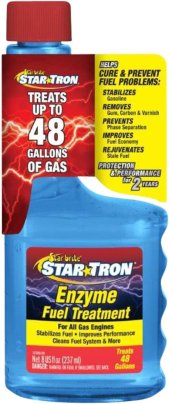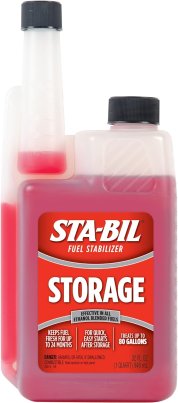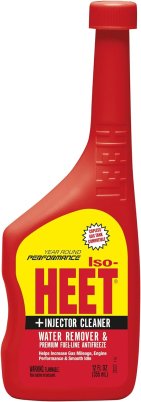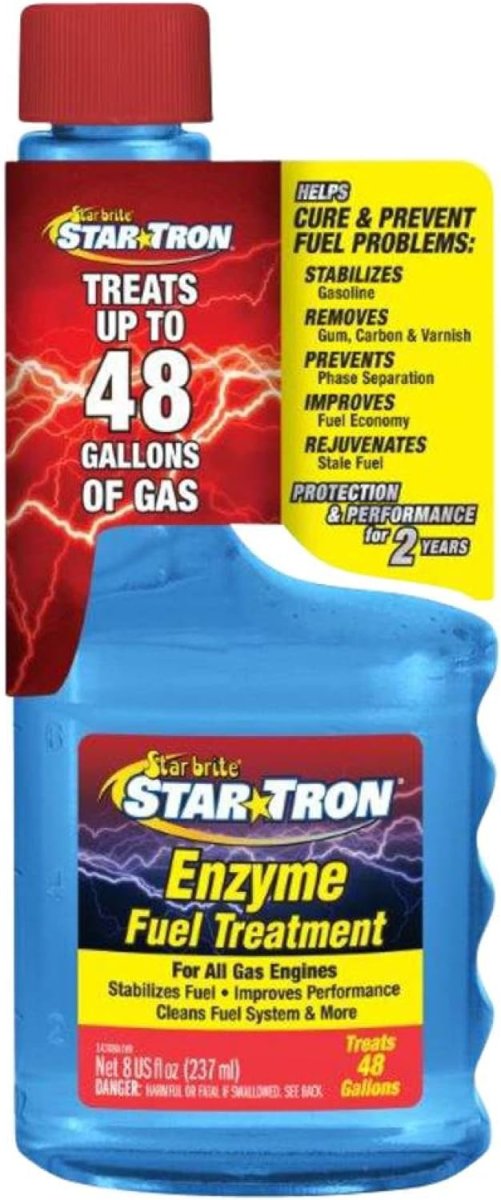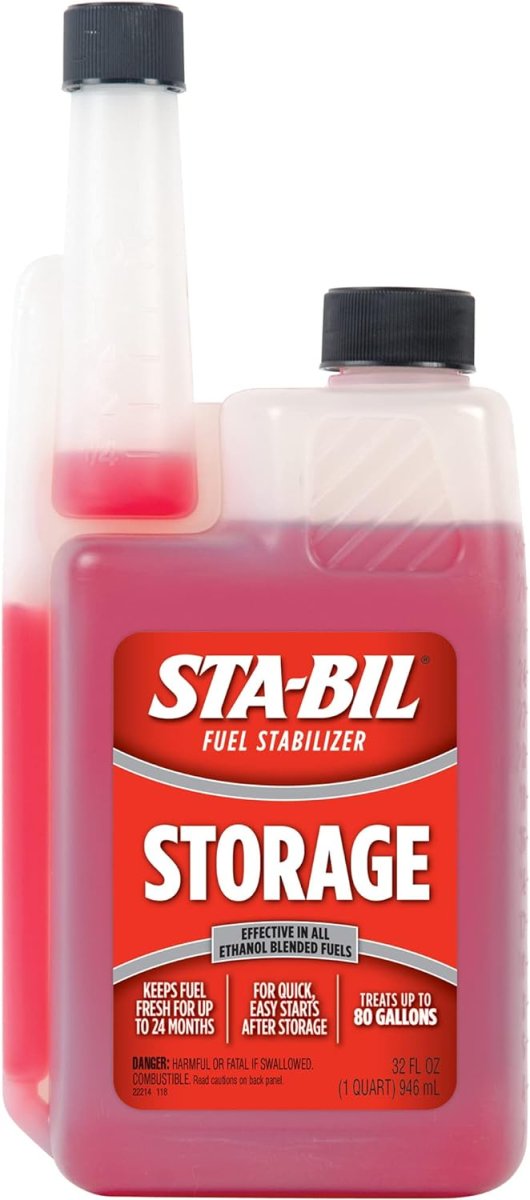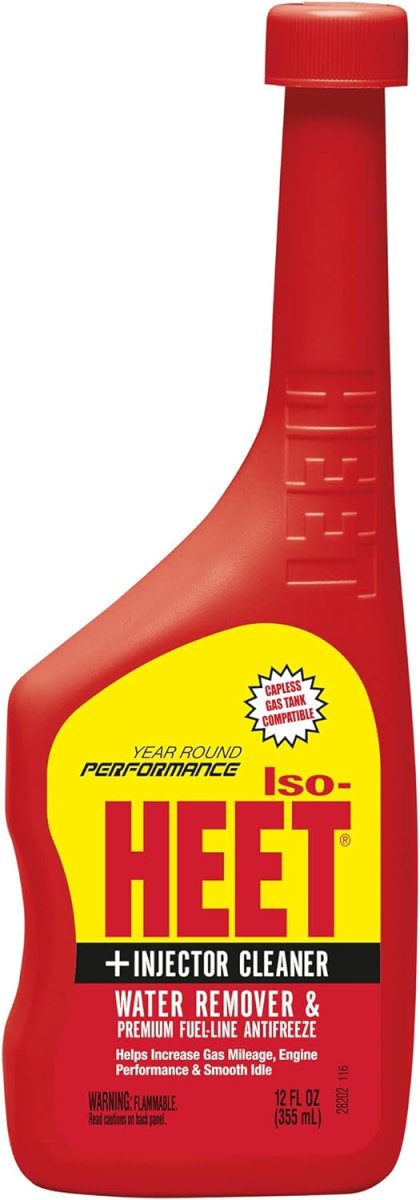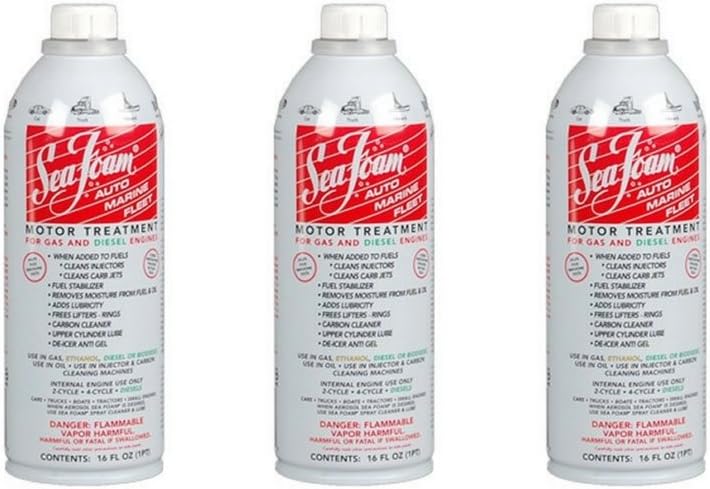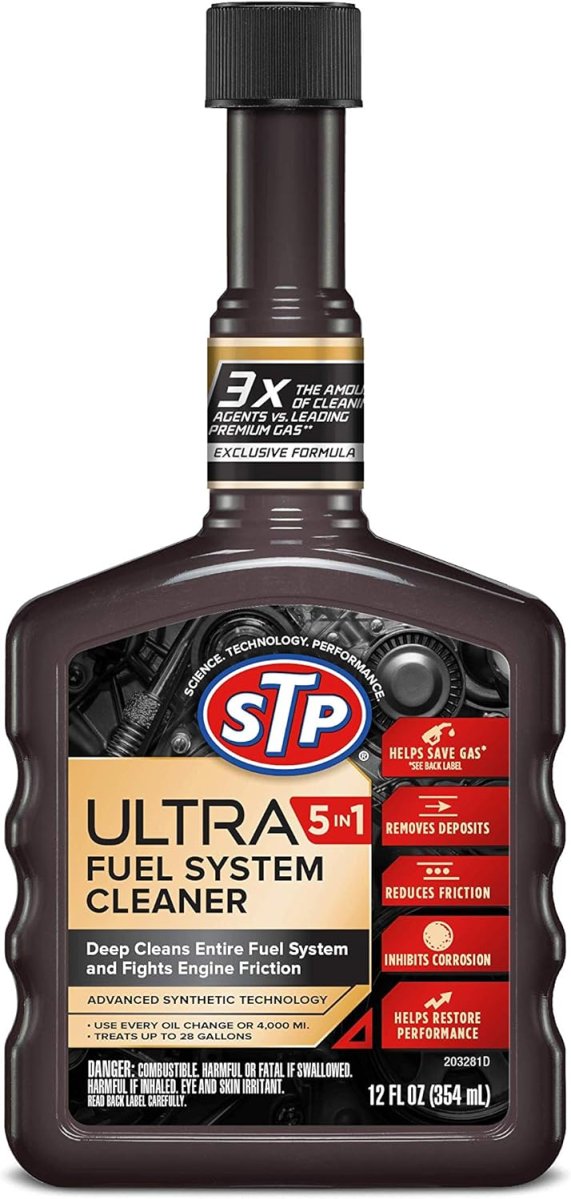We may earn revenue from the products available on this page and participate in affiliate programs. Learn more ›
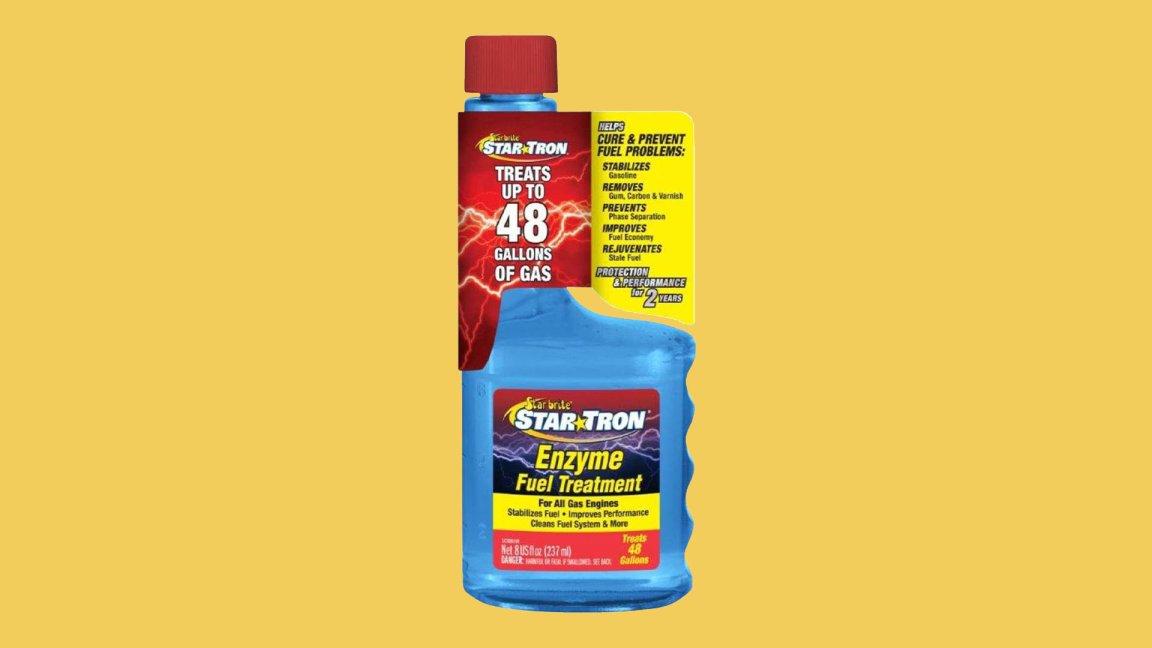
Has your car been sitting with gas in the tank, waiting in your driveway or garage for months without being driven? If you didn’t add a fuel stabilizer into your gas tank before your car began to sit, you could discover an unpleasant surprise when you do finally get behind the wheel again. Over time, both gasoline and diesel fuel can break down and deteriorate. And as these fuels age, they can leave behind gummy, gunked-up deposited throughout your engine. But if you use a fuel stabilizer, you can keep your fuel fresh, properly balanced, and perfectly stable with no evaporation — and no left-behind deposits in your engine.
If you live in a four-season climate, a fuel stabilizer is a must-have for storing gasoline or gas-powered engines for an extended period of time. To help choose the right one for your needs, I put together this helpful guide.
Summary List
- Best Overall: Star Tron’s Enzyme Fuel Treatment
- Best Value: STA-BIL Fuel Stabilizer
- Honorable Mention: ISO-HEET Water Remover
- Best Marine Stabilizer: Sea Foam SF-16 Motor Treatment
- Best for Modern Car Engines: STP Ultra 5-in-1 Fuel System Cleaner
- Best Purple Additive: Royal Purple 11722 Max Clean Fuel System Cleaner and Stabilizer
Our Methodology
Fuel stabilizers are like beer. They all work the same way but some have different ingredients. The difference comes down to your specific needs. Some fuel stabilizers are better for winterizing a vehicle or putting it in long-term storage. Other stabilizers work for up to six months and are formulated for small engines like a lawnmower or snowblower. Then there are stabilizers which are better at cleaning and lubricating fuel systems but aren’t recommended for long-term storage. With that in mind, I researched a number of fuel stabilizers to find a good cross-section of the different types of additives. Finally, I read professional and individual reviews and evaluated the fuel stabilizers based on my experience to narrow down this list. The goal was to present the best options so you can make an informed choice.
If you’d like to know more about how we research products, check out our set of guidelines for reviewing and recommending products and services.
Best Fuel Stabilizers: Reviews & Recommendations
Best Overall: Star Tron’s Enzyme Fuel Treatment
Pros
- Highly concentrated — one ounce treats 16 gallons
- Specifically designed for ethanol fuels
- Works great as a fuel stabilizer and fuel system treatment
Cons
- One of the more expensive additives
- Bottle shape makes it hard to pour
Star Tron’s Enzyme Fuel Treatment is the top pick because it is specially formulated to eliminate and prevent ethanol fuel problems. The enzyme technology helps break down water and sludge and prevent phase separation. It works well as a fuel additive for regular use and will stabilize gasoline for up to two years. You can even use it to treat two-cycle engines and vehicles like ATVs, snowmobiles, and watercraft.
Star Tron claims their Enzyme Fuel Treatment increases fuel economy by cleaning the entire fuel delivery system and even rejuvenates stale fuel. It also protects against the corrosive effects of ethanol while removing gum and varnish deposits. The result is a cleaner and more complete combustion improving performance, fuel efficiency, and reducing emissions.
The drawbacks to Star Tron’s Enzyme Fuel Treatment are minor. It is one of the more expensive fuel stabilizers on the market, but that cost is offset by the high concentration ratio. The bottle is also a bit awkward to use making it hard to measure out the right amount of fuel additive. It’s also not safe for diesel engines. For that, you need their enzyme treatment formulated for diesel fuel.
Best Value: STA-BIL Fuel Stabilizer
Pros
- Can stabilize gas for up to two years
- Specifically designed to remove water from the fuel system
- Works great with any gasoline engine
Cons
- Does not lubricate or clean fuel systems
Sta-Bil has been around for over 60 years and offers the best value on the market. The company’s fuel stabilizer is a great choice for long-term storage, offering year-round protection and keeping gasoline fresh for up to 24 months. It also keeps your vehicle’s fuel system in good running condition while it sits idle, removing water from the fuel system and preventing corrosion.
Sta-Bil works well for all gasoline-powered vehicles including motorcycles, ATVs, and watercraft, and it’s safe for 2- and 4-stroke engines. The only drawback is it doesn’t lubricate or clean fuel systems like some of the other fuel stabilizers on this list. Additionally, while it works great with gasoline engines, it is not suitable for diesel engines. But if you own a diesel, Sta-Bil has it covered too.
Honorable Mention: ISO-HEET Water Remover
Honorable Mention
Lucas Oil 10303 Fuel Stabilizer
See ItPros
- Cleans and lubricates your entire fuel system
- Works great with any gasoline engine
- Good for ethanol and non-ethanol gas
Cons
- Has a high stabilizer-to-gallon ratio (one ounce to one gallon)
Specs
- Safe for all grades of gasoline including ethanol and non-ethanol blends
- Cleans and lubricates your entire fuel system
- Stabilizes gasoline for up to one year
- One ounce treats one gallon of gasoline
- Safe for 2- and 4-cycle engines
Pros
- Great at removing water from the fuel system
- Works great on any gasoline or diesel engine
- Good for any fuel type
Cons
- Not good for long-term storage
ISO-HEET is a fuel-line antifreeze, water remover, and injector cleaner that absorbs up to five times the water of regular gas dryers. It is designed for year-round use in all 2- and 4-cycle gas and diesel engines. While not a suitable fuel stabilizer for storing gasoline or diesel engines, it helps prevent rust and corrosion by keeping water out of the fuel.
It’s also a good additive to use in cold weather if your vehicle sits outside. For the price, it’s cheap insurance against water buildup. The recommended treatment is one 12-ounce bottle per tank of fuel.
Best Marine Stabilizer: Sea Foam SF-16 Motor Treatment
Pros
- Easy and simple to use kit
- Cleans and lubricates fuel systems, carburetors, and fuel injectors
- Works great on any gasoline or diesel engine
- Good for any fuel type
Cons
- Not good for long term storage
- Hard to find in single bottles online
Sea Foam is another oldie and has been trusted since 1942. It’s not just a marine fuel stabilizer but an all-around utility player that cleans and lubricates fuel systems. It dissolves varnish and carbon deposits and does a great job of stabilizing diesel and gasoline for up to two years.
In addition to cleaning and lubricating fuel systems, Sea Foam also lubricates your intake valves and pistons. It’s the only fuel stabilizer on this list that can be added to motor oil to clean oil passages quieting noisy lifters, tensioners, and actuators. But while it works on just about any engine, it’s not necessarily the best all-around product. It is one of the more expensive fuel stabilizers, and while it can stabilize fuel for up to two years, it is more of an engine cleaner and lubricant. If you’re looking for a fuel stabilizer specifically for long-term storage, there are cheaper and better products for that purpose. Another drawback is that locating single bottles online can be an issue, driving up the cost of this entry.
Best for Modern Car Engines: STP Ultra 5-in-1 Fuel System Cleaner
Pros
- Formulated for modern gasoline engines
- Lubricates engine parts, reducing friction and improving fuel economy
- Redesigned bottles are compatible with cap-less fuel tanks
Cons
- Not a viable option for short or long term storage
STP is another company that’s been around for over 60 years. It’s known for oil and gas treatments as well as its sponsorship of Richard Petty’s #43 stock car. One of STP’s more recent products is the Ultra 5-in-1 Fuel System Cleaner which is formulated for modern engines which are susceptible to unique deposit and lubrication issues.
Turbocharging and direct injection lead to harsh deposits, causing excessive friction, reducing performance, fuel efficiency, and premature engine wear. STP’s ULTRA 5-in-1 Fuel System Cleaner uses advanced synthetic technology with a proprietary blend of PEA and PIBA detergents to help remove harmful deposits and fight engine friction.
The STP bottle is designed to work with cap-less fuel tanks and treats up to 35 gallons. The company claims one bottle every oil change, or 4,000 miles is enough to restore engine performance. However, it should not be used to store a vehicle for any length of time.
Best Purple Additive: Royal Purple 11722 Max Clean Fuel System Cleaner and Stabilizer
Pros
- Completely cleans the entire fuel system
- Restores lost performance and reduces engine knocking and pinging
- Lowers hydrocarbon, NOx, and CO emissions
- Stabilizes fuel and is good for any fuel type including ethanol, diesel, and biofuel
Cons
- Not suitable for use in long term storage
Think of it as the purple gunky eater. Like Lucas, Royal Purple produces all kinds of consumer, industrial, and commercial fluids and oils. Its Max Clean completely cleans fuel systems, eliminating buildup and deposits. The company claims it also reduces hydrocarbon, NOx, and CO emissions by up to 18 percent and improves horsepower and fuel economy by up to 3 percent.
Other benefits include the elimination of rough idling, hesitation, knocking, pinging, and engine stalling. It works on just about any engine and is compatible with any fuel type including ethanol, diesel, and biofuel. One 20-ounce can treats up to 20 gallons of fuel and the company recommends using it every annually or every 10,000 miles.
Royal Purple claims Max Clean also works as a fuel stabilizer and is suitable for storing vehicles but the company’s website does not provide a length of time. For that reason, it’s better to use another fuel stabilizer for storage longer than a few weeks or a month.
Our Verdict
Star Tron’s Enzyme Fuel Treatment takes the win because of its combination of additives for stabilizing fuel and lubricating fuel systems. However, you won’t go wrong with any of these fuel stabilizers. The STA-BIL Fuel Stabilizer is a great value and a trusted brand used for over 60 years and is a great choice for folks who need to save money wherever they can.
What to Consider When Buying a Fuel Stabilizer
Fuel stabilizers can extend the life of your car’s fuel for as long as two years. They can even be used for gas you’re storing in fuel cans or for your lawnmower, snowblower, chainsaw, and other gas-powered items. If you’re hoping to maintain great performance and long-term functionality, a fuel stabilizer is a must-have. Check out our picks for the best fuel stabilizers, plus our tips for choosing a great stabilizer, right here.
Spring had sprung and I opened the garage door and was finally able to roll out my old Mustang. Over the winter, I installed a new cylinder head and carburetor, and after sitting dormant for six months, I was eager to fire it up. After reconnecting the battery, I checked the fuel line and made sure the coolant was topped off. Finally, I climbed into the driver’s seat, pumped the gas, and turned the key. As the starter engaged, I realized I was about to run old fuel through a new carburetor. Fuel that was now more than six months old. A new fuel filter would help, but if any gunk got past, I’d be looking at flushing the tank, fuel line, and maybe a carburetor rebuild.
Fortunately, I had added a fuel stabilizer before I stored the Mustang. More proof of better living through chemistry, fuel stabilizers extend the shelf life of gasoline up to two years — even longer if you buy non-ethanol gas. Used properly they prevent gasoline from breaking down and it can be left in gas tanks, vehicles, or small engines.
Length of Time
The first thing to consider is the length of time for storage. Several of the fuel stabilizers on this list provide up to 24 months of protection. But if you only need something for the winter months or half a year, you may want a stabilizer that offers other benefits like cleaning and lubricating the fuel system.
Ease of Use
Some fuel stabilizers come in a bottle that you dump in a tank with up to 20 gallons of fuel. But many provide a mix ratio like one ounce to 10 gallons of gas. This is when ease of use becomes important, specifically how easy it is to measure the right amount of fuel stabilizer for adequate protection.
Pro tip: Your significant other will not appreciate it if you use their measuring cups, medicine syringes, shot glasses, or other household containers to dose out the correct amount of fuel stabilizer. Trust me on this one.
Compatibility
Make sure you’re using a fuel stabilizer that is compatible with your type of fuel. Some gasoline fuel stabilizers do not work for diesel engines and vice versa. Some fuel stabilizers work better with ethanol blends. Make sure you get the correct type of fuel stabilizer for your engine and fuel type.
Cleaning and Lubricating Properties
A fuel stabilizer’s primary function is to keep your gas fresh for a period of time. Cleaning and lubricating your fuel system is a secondary consideration, which is why some fuel stabilizers do not contain those additional additives. Many stabilizers offer both benefits but it’s important to confirm the one you’re buying will fit all of your needs.
Formula
Gasoline storage during the winter comes with its own set of challenges. If you primarily store your vehicles and other gas-powered devices during the winter months, make sure you use a fuel stabilizer formulated for that purpose.
Another formula consideration is water absorption. One of the key ways fuel degrades over time is by absorbing water. This is one reason ethanol blend gasoline degrades faster than non-ethanol and why some states reduce the ethanol content during the winter months. If a fuel stabilizer contains alcohol it will compound this problem and fail to adequately protect your fuel.
FAQs
You’ve got questions. The Drive has answers.
A: Most fuels start to break down in as little as three months. Chemical reactions plus the evaporation of some volatile components reduce the fuel’s ignition properties leading to contaminated fuel systems and poor engine performance. Fuel stabilizers prevent the fuel from breaking down, keeping it fresh for up to two years.
A: It’s possible to put too much stabilizer in gas, but unlikely. STA-BIL states that you can safely use up to four times the normal dosage of one ounce of fuel stabilizer per 2.5 gallons of gas. So an eight-ounce bottle of STA-BIL will safely work on as little as five gallons of gas.
A: Fuel stabilizers are essential for preserving gasoline and diesel fuel which break down in a short period of time. These products do not hurt your engine and help prevent engine failures as well as prevent your engine from failing to start after a long period of storage.
A: Regular gasoline has a shelf life of 3-6 months, while diesel can last up to a year. Ethanol fuel blends have the shortest shelf life, losing combustibility in just one to three months due to oxidation, evaporation, and water contamination.
A: If you don’t use a fuel stabilizer it could lead to poor performance or an engine that fails to start after several months of storage. Left for a longer period of time, the fuel could gum up or corrode the fuel system, leading to extensive and expensive repairs.
